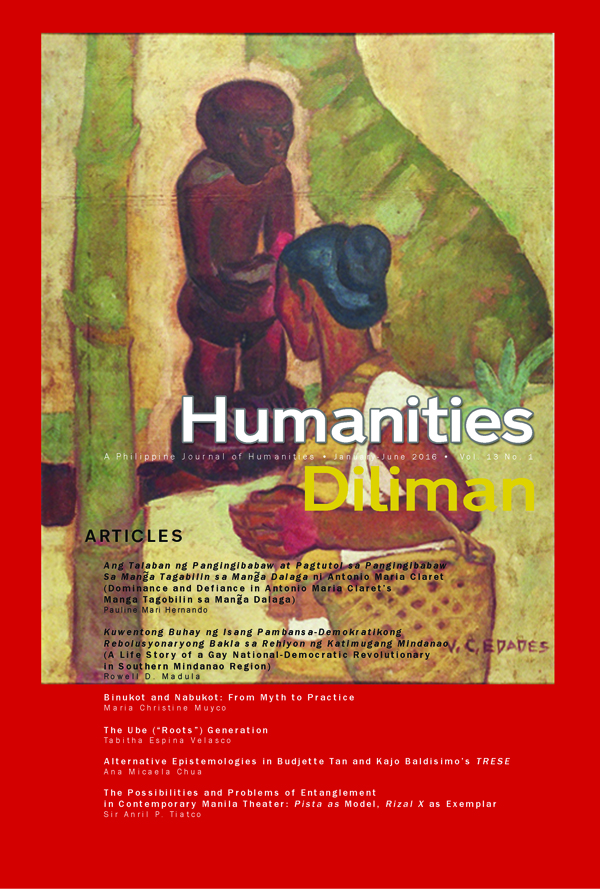Alternative Epistemologies in Budjette Tan and Kajo Baldisimo’s <em>TRESE</em>
Abstract
Postmodern readings are premised on the dissolution of grand narratives, disallowing the imagination of unity or truth, and giving primacy to decentering as novelty. Working against such a tendency, this essay presents a reading of Budjette Tan and Kajo Baldisimo’s TRESE as a text grounded in particular social epistemologies, which allows the text to speak of Metro Manila as a unified entity where people share realities and myths. TRESE, I argue here, locates the impulse for resolution in alternative systems of knowledge— often between superstition and grand narrative—that are easily available, but often too quickly dismissed as useless or outmoded.
In stories such as “Wanted: Bedspacer” and “Cadena de Amor,” different ways of accessing knowledge are allowed to play vital roles in detection without totally devaluing rational analyses. These alternatives to logic and science may themselves vary: from superstitions to the properly arcane, from “common sense” to emotional and sociological understanding of human interaction. The text engages in myth-making in an effort to approximate cultural unity, where such unity has always been problematic, by imagining alternative access points to truth; this is a move that must be read in the context of a culture that is not irrational or anti-rational, but one in which rationality is only one way of accessing knowledge. TRESE empowers alternative systems of knowledge that allow us to better comprehend ourselves as a society.
In this essay I employ critical insights from Kumkum Sangari’s “The Politics of the Possible,” through which TRESE can be read as a text that is not simply a novelty, but as one in which popular tropes and strategies of myth-making come together to present the possibility of a vision of a Philippine urban culture that embraces both the fantastic and the real, rather than being divided between them.
Keywords: Comics, cultural identity, postcolonial, supernatural detective, trese


